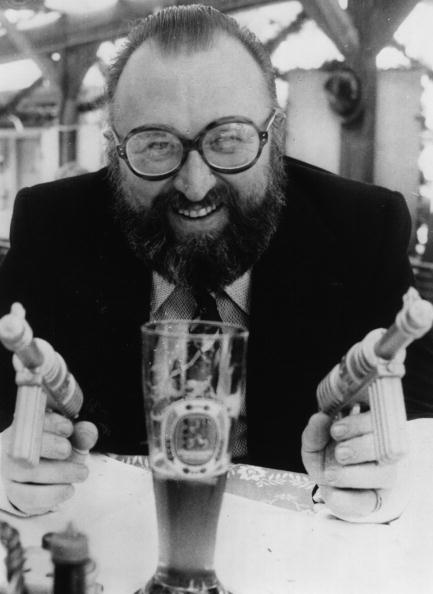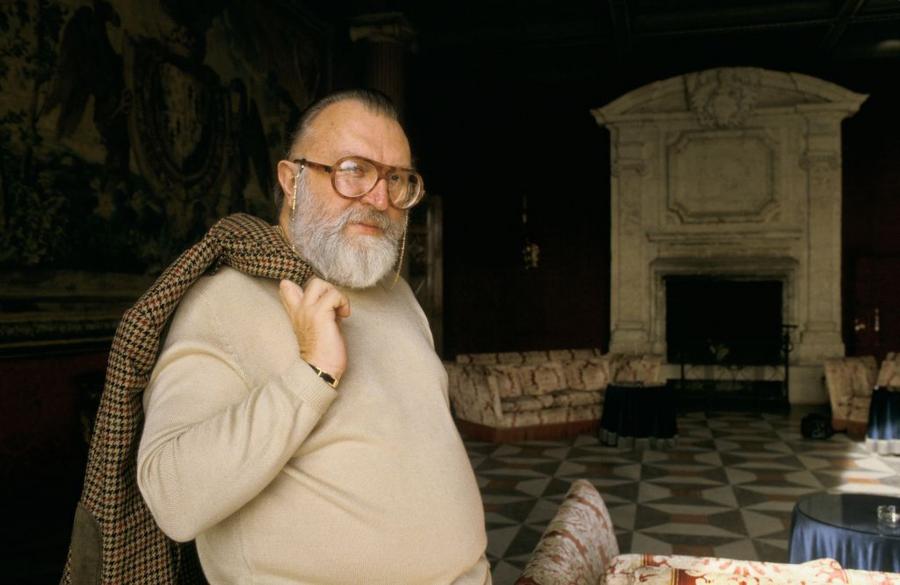What was Sergio Leone's Net Worth?
Sergio Leone was an Italian filmmaker who had a net worth of $10 million at the time of his death. Sergio Leone pioneered the spaghetti Western subgenre in the 1960s with his films "A Fistful of Dollars," "For a Few Dollars More," "The Good, the Bad and the Ugly," and "Once Upon a Time in the West." He also directed "Duck, You Sucker!" and the epic crime film "Once Upon a Time in America." Considered one of the most influential directors in cinema history, Leone is known for his dramatic visual style consisting of extreme closeups and lengthy wide shots, and for his collaborations with composer Ennio Morricone.
Early Life and Education
Sergio Leone was born on January 3, 1929, in Rome to silent film actress Edvige Valcarenghi, better known as Bice Waleran, and actor and filmmaker Vincenzo Leone, better known as Roberto Roberti. Although he studied law for a time at university, Leone dropped out to begin his own career in the film industry like his parents.
Career Beginnings
Leone commenced his career in the film industry as an assistant to Vittorio De Sica on the director's 1948 Italian neorealist classic "Bicycle Thieves." After that, he started writing screenplays, mostly in the sword-and-sandal subgenre that was popular in the 1950s. Leone also worked as an assistant director on a number of major international productions shot at Rome's Cinecittà Studios, including the Hollywood epics "Quo Vadis" (1951) and "Ben-Hur" (1959).

Getty Images
Film Directing
Leone made his unofficial directorial debut in 1959, when he stepped in to complete the historical disaster film "The Last Days of Pompeii" after the original director, Mario Bonnard, fell ill. His official, solo directorial debut came in 1961 with the sword-and-sandal film "The Colossus of Rhodes," starring Rory Calhoun. Leone went on to have his career breakthrough with "A Fistful of Dollars," which was released in Italy in 1964 and the United States in 1967. Considered the first major film in the spaghetti Western subgenre, it also gave Clint Eastwood his first leading role, as the mysterious Man with No Name. Leone next made "For a Few Dollars More" (1965) and "The Good, the Bad and the Ugly" (1966), completing a trilogy that would come to be known variously as the "Dollars Trilogy" or the "Man with No Name Trilogy." Eastwood was the star of all three, and was joined by such other actors as Eli Wallach, Lee Van Cleef, and Klaus Kinski. The Trilogy also contained the music of composer Ennio Morricone, whose themes went on to become iconic. Leone continued working with Morricone for his next, and final, three films, cementing their partnership as one of cinema's most fruitful director-composer collaborations.
Due to the huge success of his "Dollars Trilogy," Leone was invited to the United States to direct "Once Upon a Time in the West" for Paramount Pictures. Starring Charles Bronson, Jason Robards, Claudia Cardinale, and Henry Fonda in a rare villainous role, the film was released in 1968 to disappointing results at the US box office. However, it was a massive success in Europe, and later earned a reputation among many as Leone's greatest film. The director next made "Duck, You Sucker!," an epic Zapata Western. Released in 1971 in Italy and 1972 in the United States, it stars Rod Steiger and James Coburn as a Mexican outlaw and an Irish revolutionary, respectively, who become involved in the Mexican Revolution. Although Leone had been given an offer to direct "The Godfather" around this time, he declined it so he could work on an epic gangster story of his own. That film would become his final film, "Once Upon a Time in America," based on the novel "The Hoods" by former mobster Harry Grey. Starring Robert De Niro and James Woods, the film premiered to a rapturous response at the 1984 Cannes Film Festival. However, the four-hour epic was heavily edited in the United States, resulting in tepid reviews and box office. The original, uncut version of "Once Upon a Time in America" was later released in the US, and came to be regarded as a masterpiece.

(Photo by Jean-Jacques BERNIER/Gamma-Rapho via Getty Images)
Other Film Work
Beyond his own films, Leone produced films by other directors, including Damiano Damiani's 1975 spaghetti Western comedy "A Genius, Two Partners and a Dupe," which he also co-wrote. Among the other films he produced were Luigi Comencini's 1977 giallo comedy "The Cat" and Carlo Verdone's "Fun is Beautiful" (1980) and "Bianco, rosso e Verdone" (1981). Leone also co-wrote Verdone's 1986 comedy "Troppo forte."
Leone had plans to direct a number of films that never ultimately came to fruition. They included "A Place Only Mary Knows," a Western set during the American Civil War; "Leningrad: The 900 Days," based on Harrison Salisbury's non-fiction book; and a contemporary adaptation of "Don Quixote" starring Clint Eastwood and Eli Wallach. Leone was also an early candidate to direct the 1980 space opera superhero film "Flash Gordon," but he turned it down due to its infidelity to Alex Raymond's original comic.
Death
On April 30, 1989, Leone passed away after suffering a heart attack in Rome. He is buried in Napoleonic Cemetery in Pomezia, Italy.










 Bengali (BD) ·
Bengali (BD) ·  English (US) ·
English (US) ·